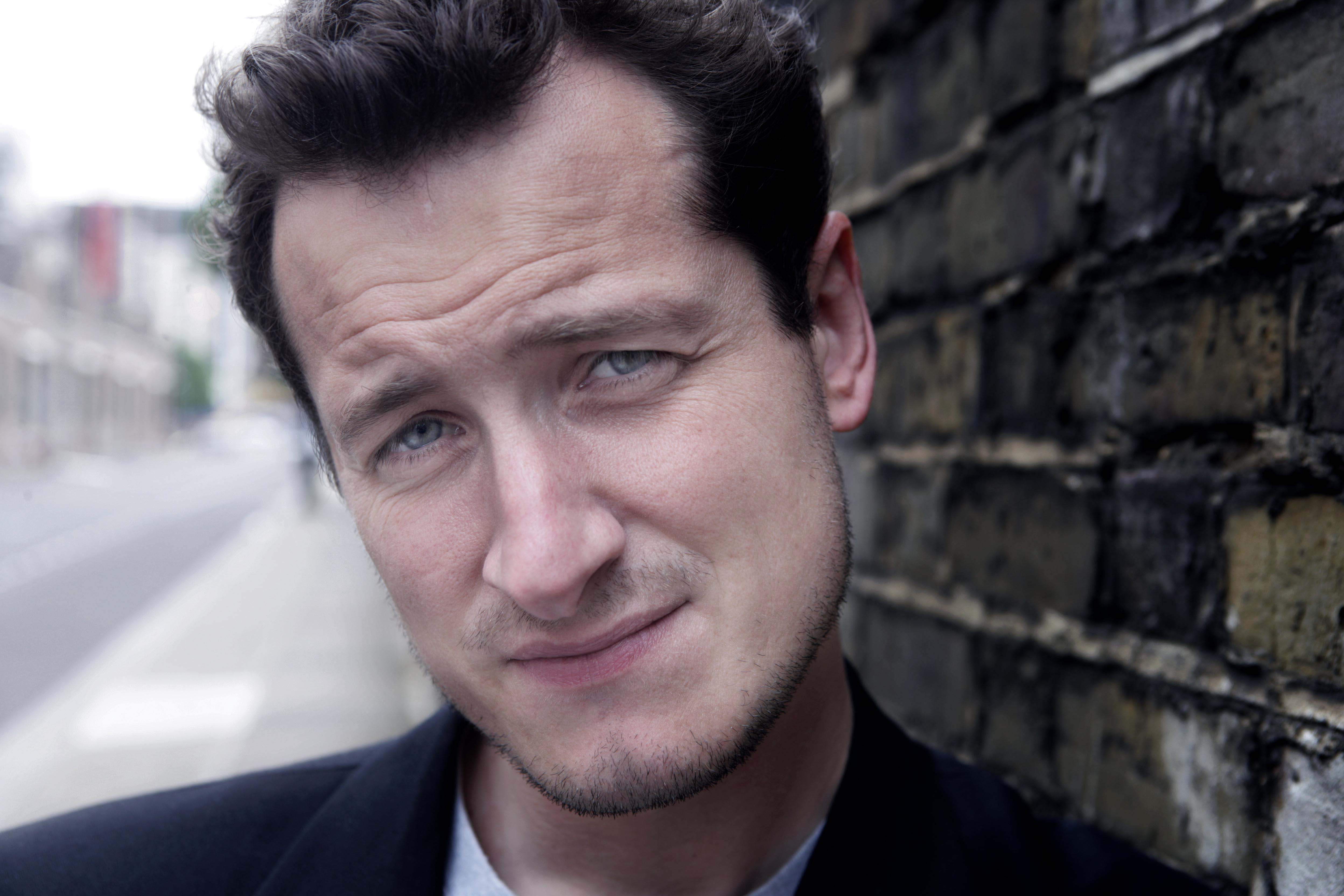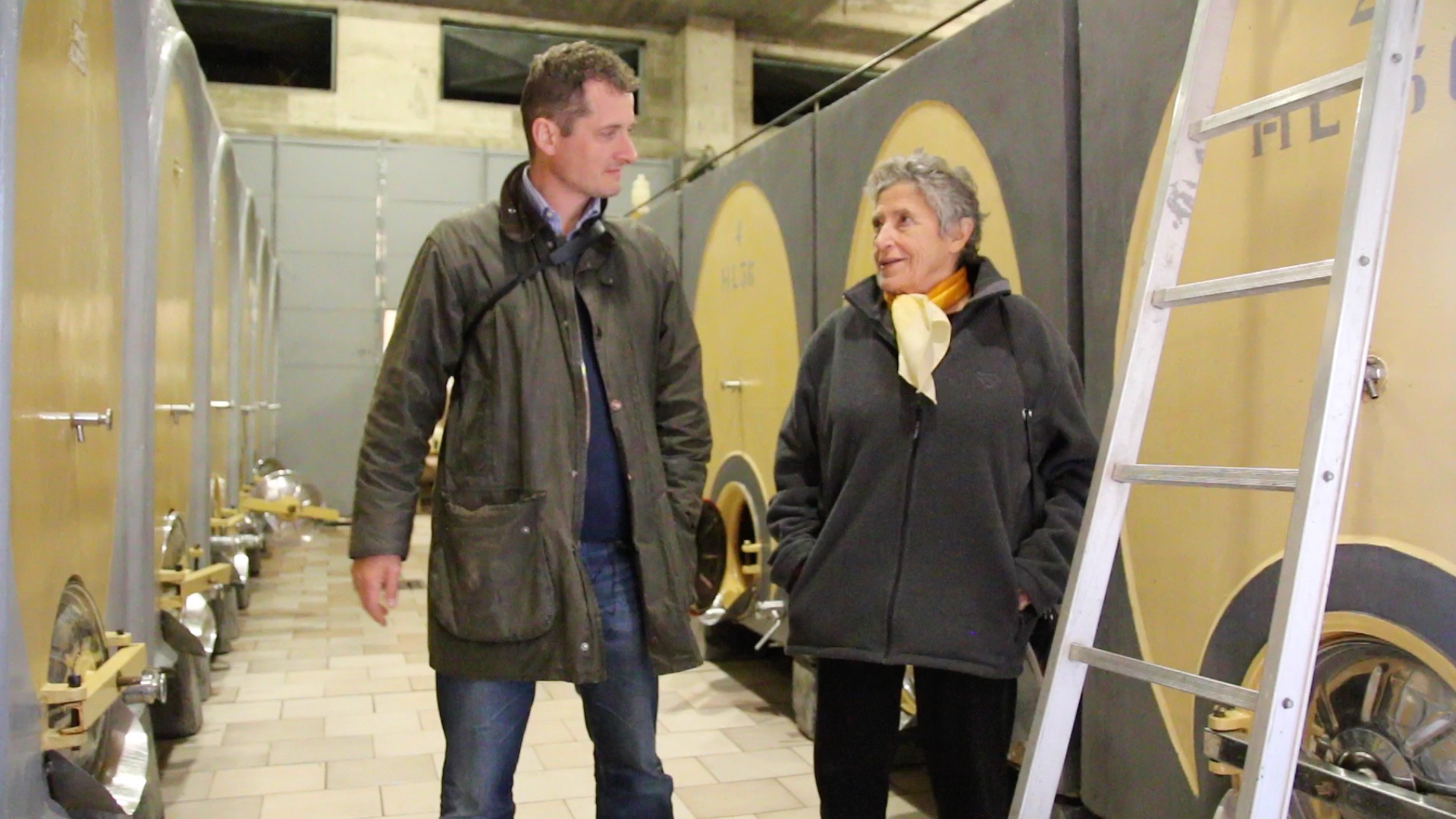
Elisabetta Fagiuoli has a spirituality about her that is present in her wines. She is the owner of Montenidoli in the San Gimignano region of Chianti, Tuscany. Montenidoli means "the mountain of the little nests" and it is comprised of 24 hectares of vineyards surrounded by 200 hectares of woodlands. The Etruscans were the first to discover this treasure and plant vines, followed by the Romans and the Knights Templar.
The property which she owned with her late companion Sergio was brought under vine in 1965, and at the time was abandoned wilderness. Located on the top of hills, the farm is remote and has spectacular vistas of the Chianti hillsides. There is a profound respect of the vineyard and the land which is clearly present in the winemaking at Montenidoli. Fagiuoli's highest vineyards are comprised of Triassic soils which are over 350 million years old.
Fagiuoli talks to Monty Waldin about the soul of Chianti and the work of her foundation.
Monty Waldin: Elisabetta, tell me a little bit about how you found this estate.
Elisabetta Fagiuoli: The story goes to the Madonnas. To the Madonnas of Siena, because I studied the history of art. I love to live very happily with the known and the beauties of our life, but also with the unknown. That means the beauties that surround us, that we don't know, that we can't reach. One of the most beautiful periods of our history was when the terrible Christian triumph - the Christ that was looking at everybody to see whether they had to go to Hell or to Paradise. It opened us up to the beauties of life. Painters began to paint the beauties of nature, of birds and of the woods and together with the unknown that means the gold of the infinite and the unknown. The Madonnas are taking their little child with a nice flower, with a nice little bird, but on the back it was the gold of the infinite and the unknown. For this reason, I chose this place.
This place was totally abandoned. There was nobody here.
Which year was this in?
'65.
1965.
No road, no water, no electricity. It was a forest. We began with a forest here, but we had nine children. Beautiful children, full of life. We enjoyed it very much. We were young, so full of energy, so we could go and get our water from the well, to wash, to eat, for everything. We had candles, because there was no light. There were only two lamps, but if you switched on one, the other one would fade. That was the beginning. But the beginning of Montenidoli.The first inhabitants here, the beautiful, rich first inhabitants were the molluscs. How do you say?
Oysters. Yeah. The molluscs.
Molluscks, they were in the sea here. Not here, but underneath.
How many millions of years ago?
Four or five million years ago. That means yesterday [geologically]. Compared to this soil, yesterday.
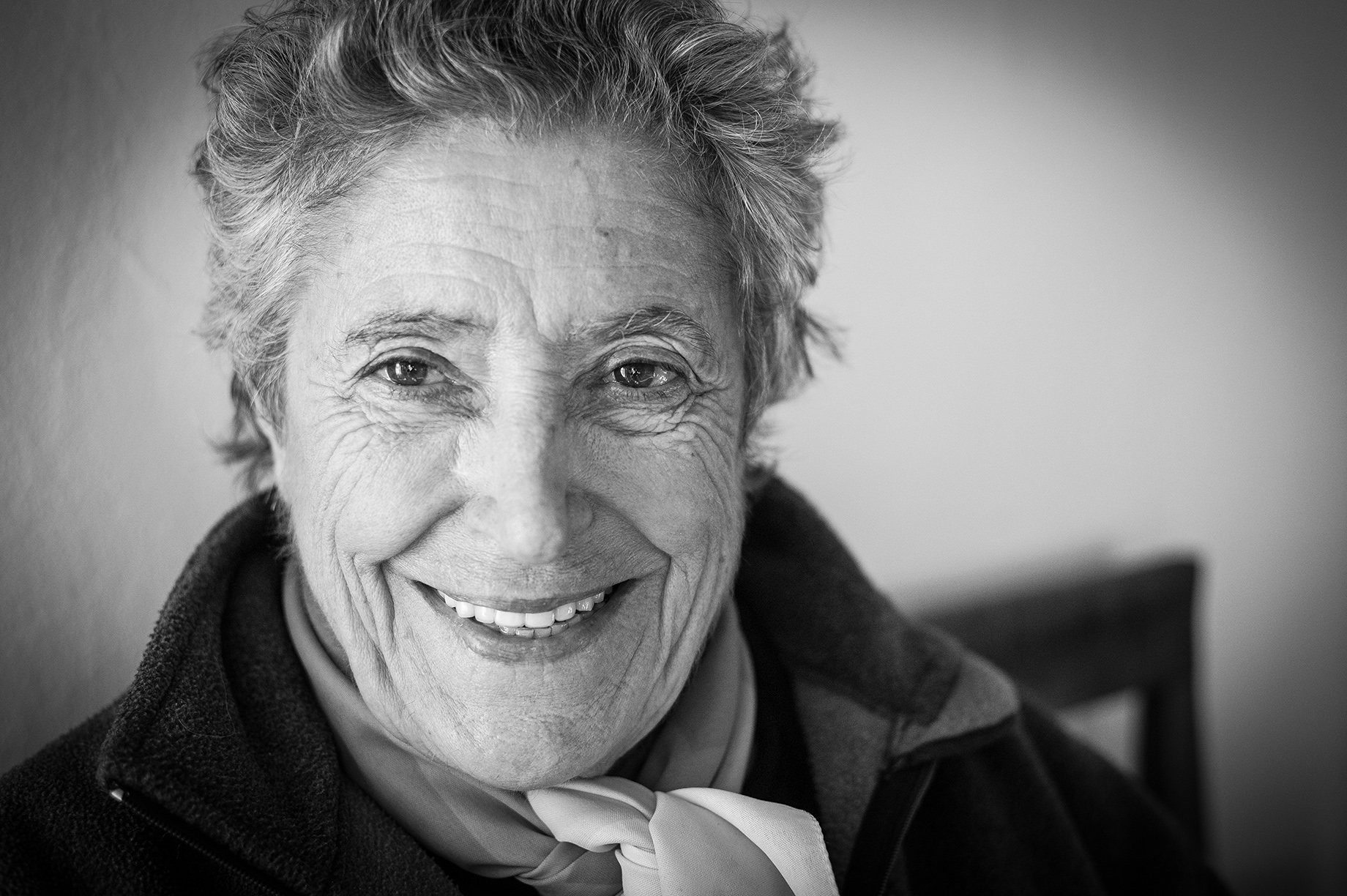
Winemaker Elisabetta Fagiuoli of Montenidoli photographed by Monty Waldin
How old is this soil that we're on here?
This soil is 300 million years old.
What was happening on planet Earth at the time? Was it dinosaurs?
This was Triassic. There was the Quaternary period. When the sea came all the way down here, all the hills, you just had the little hills coming up, but the sea was covering everything. The waters were very shallow, so you had beautiful river animals, and they left an incredible richness of marine sediments. That is why you can have Vernaccia, a white wine, in this place where usually you have red wines, because Tuscany is the mother of red wines, not of white wines. That's why also, the natural wine is a very rich wine, very heavy wine. It's the red of the white wines, really.
That's due to the soil? You're saying it is this soil that's full of marine fossils that gives a very rich-bodied wine?
Yes. That is Vernacchia wine. That's why you can have a white wine, but the mother is white, but the color is for the reds. You have heavy wines. Heavy wines that should take time to get good.
What have you planted on this Triassic soil?
This is Sangiovese.
This is for the red wine.
This is for the red wine. The wine for the Foundation, and it goes only in magnums, and the magnums are all for the supporters of the Foundation.
Just tell us very briefly about the Foundation.
The Foundation wants to bring together a little bit from all of us, because we are all so stupid. We [humans in general] separated. You know we are so good with our techniques, we are so good in getting rich and getting material things, but spiritually we are so apart. We are so abandoned. We don't know how to share. We don't know how to speak the same language. We are all so closed, one against the other. Let's start to put everybody together here. Let them shut up. No television. No WiFi. Only one hour in the evening and they have to hear and speak with nature. They have to speak with the birds, and with the richness of the rocks. The rocks speak if you hold them in your hands. It gives you some energy. It gives you something. You have to learn this. I always ask people, "Do you know where are the five senses of a plant?" The big biologists, the big organic people, very often don't know. We are so far away now from what is our mother.
Where are the five senses of the plant, for people that don't know?
Where are the ears of a plant? Where are the eyes of a plant? Where is everything?
The nose?
The nose.
The tongues. The fingers?
How they communicate with each other, because they communicate. Why do you find the same plants all in one place? And you don't find them in another place? Because they know where to go. Slowly, but they can do many things. They have to stay here one month. Altogether, different places, Europe is right in the heart of our big bridge between Asia and America. We have to teach people. We should learn first of all to be together, but then we have to make everybody together. This is what I feel.
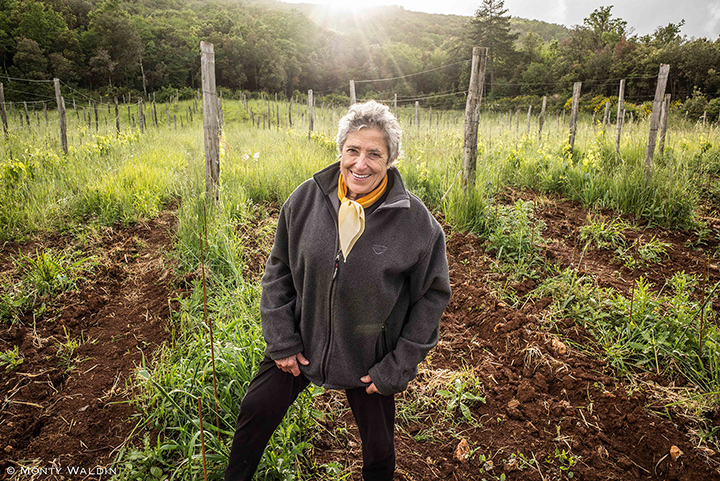
Photograph by Monty Waldin
Do you think wine is something that can unify people?
Of course. First of all, with wine, you open your heart and your mind, because with a good glass of wine you forget and you try to get friends. It's much easier to communicate after a glass of wine. It's a big culture that is spreading all around the world now.
The wine culture?
Yes. It has been part of the culture of a portion of the Etruscans. The Etruscans came from Libya. They came over from Georgia, Turkey, Persia, where the first grapes were grown.
In Tuscany?
No. In Persia. Today, poor Afghanistan. Poor Iraq. Turkey, Georgia. They were the first to grow the vines.
You arrived here in 1965 with your late husband Sergio. You had...
He was not my husband. He was a great teacher, and a great companion. We had seven ... No, nine children to take care of.
They weren't your children? You were looking after children...
I had two children. Two. Two were mine. All the rest were, oh, little troubled children in one sense or the other, but they found here peace, love, and a future in the vines. That's why we always thought, Sergio and me, that we had to share this. We have to give to other people the possibility to be together, to open their minds and their hearts, and that's very important.
You were a pioneer here in this region of San Gimignano in '65. In 1966 it became officially recognized as a subregion [a DOC or Denominazione di Origine Controllata]. What changes have you seen in that period?
No, no. I was very much looking under the earth. I was not going around. I began to make wine because I had to. When the children went away, either you had to sell or you had to work, and I know wine since I was born. I am part of Valpolicella [Elisabetta was born in Verona, north-east Italy]. You know what Valpolicella? I know how to make wine. It's just how to make soup. It's something of the family. You have a small kitchen at home, and you have a big kitchen downstairs, so I began to make wine in the most simple, natural way. To be organic, it's a question of culture. It's not a question of fashion. Remember that culture stays and fashion goes. Now everybody has new ideas about culture, about being organic. Everything now has to be organic, but that is a way [a fashion]. It's not the truth of humans. Humans had to come back to the earth. That's why the Foundation. That's why you can be real[ly] organic when you speak to the soil, when you speak to the plants. Wine is made speaking to the vines, not going in the market to see what is the wine in fashion. The way you should make the wine in order to sell it on the market.
It's the earth that has to teach you what to drink. Not the big marketing companies and movements and politics.
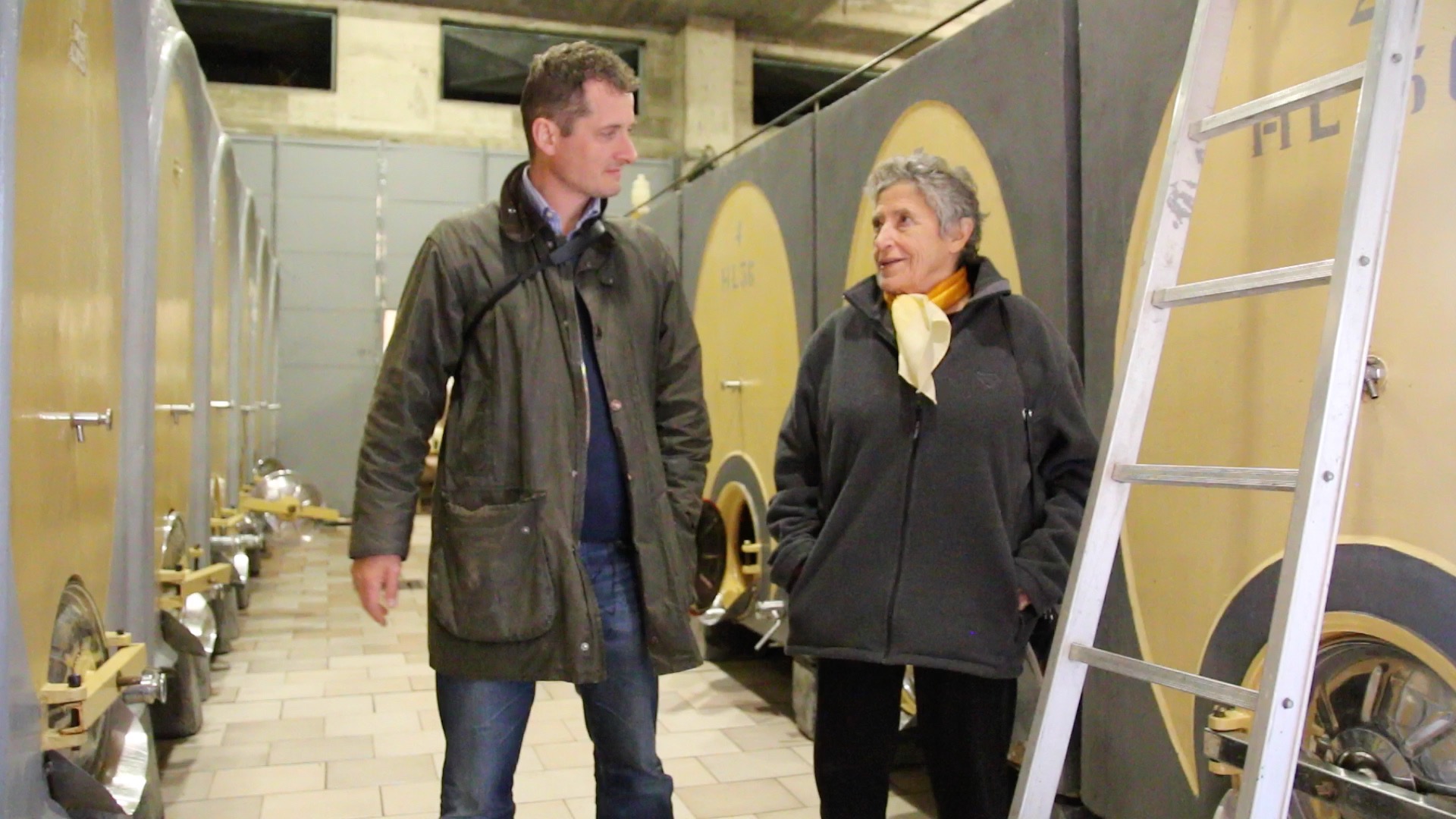
Are you optimistic there for the future of wine, and for humanity?
Of course. Yes. Yes, there is an incredible future. We are living one of the greatest revolutions that ever existed. We are really in big need of being together. We are on a very small planet you know. Today you can reach any place in a second. That's why we have to be together. They say we'll be, if people understand the sense of my Foundation, of our Foundation here, it will become a McDonalds, because everybody will need it. Every piece of soil will be a place where you can speak with the soil and the earth, with the animals. Animals, they are so forgotten, they are so badly treated. We never know how to forget ourselves. This is what we need. We have to shut up sometimes. We grew so full of our own self that we are unable to understand. This is very bad, I think. That is what I think.
When you say the Madonnas, you're talking about the sisters, the nuns, yeah?
No. Not the nuns. The Madonna. The paintings of Siena. Not the nuns.
You drew inspiration from the artworks of antiquity.
I was studying the history of art. I studied and lived for a certain time in Japan, so I had the chance, coming and going, to stop in India, to stop in Cambodia, when there were no wars, I stayed there. In China. I got an incredible amount of experience from Asia. I had been studying the history of art, Cambodian art, Indian art, Japanese art, and of course Italian art. To me, the best moment was at the beginning of the Renaissance, far [a long time] before the Florentines, far before Michelangelo showing the greatness of, and the power of mankind. Yeah? You know, the big David of Michelangelo. This is the man. From that moment began all of our civilization, because we believed to be really the lord of the planet. We have this sense of possession that is so sad, because it makes you blind. That is my feeling.
Elisabetta, this is a very delicate question, but when you are no longer here, what do you want to happen to this place?
I'll always be here. What is the sense? My spirit will always be here.
When your physical being is no longer here.
The Foundation must go on. The whole modern Italy must work for the Foundation. That is what I am looking for, and I am working, hard working. I need the supporter [backers]. I need to share. I am going to give all to somebody that will help to do this, to this aim. I am working for this now. That is, Saturday, no, Sunday, I'll make the round-trip. I leave, like Phileas Fogg. Remember Phileas Fogg? Remember Phileas Fogg? Well, I am starting east, so that I gain one day when I come back to the state, okay? It will be just to speak about the Foundation and to find somebody that will support this idea. Somebody with money, but it's difficult because rich people don't like to give away their money. They love to show themselves, but I want somebody to help me. You need money to do all this. You can't have this with selling three good bottles of wine. You see? But this is my aim. I am working for giving up [to retire], because I have to give up soon. I've been 18 for a long time, you know? I must now try to give up.
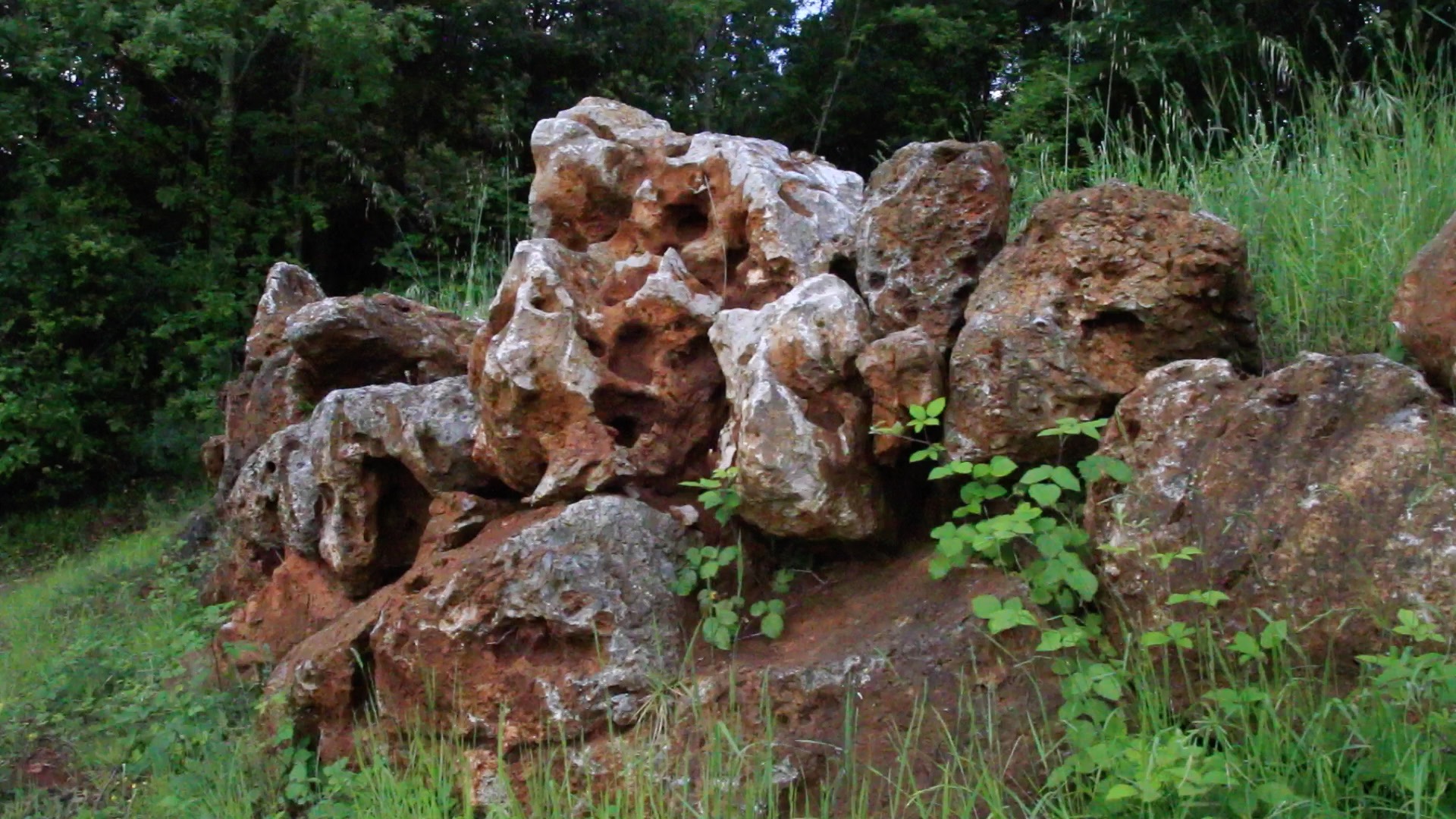
It's so funny that you have to work harder to give something away.
Of course. Yes. Isn't that ridiculous? I could sell at once, but sell to who? To somebody who will make more money for themselves? This makes no sense. I want the message, a human message to go on, because what we need is something to share, not something to have. This is my aim.
This is your highest vineyard, the hill of the bird's nest, or Montenidoli as you call it. What's so special about this soil? How old is it, and what effect does it have on the wine?
Now, here we are on the Triassic soil. That means this is 350 million years old. A million years old. The water never got here.
You mean the sea never got up this far?
The sea never got up here.
This was always above the water?
Yes. Soon, geologists will say. I don't know, but they think that the sea never got here, and so this soil is a very red soil, very rich, and very good for red wine. The Sangiovese that I planted here gives an incredibly rich, strong, and very unique taste to the Sangiovese.
Is it very spicy?
Very spicy, very rich, and it will age forever, because it's incredible. Very low hills here. Very, very low. And beautiful grapes. Beautiful grapes.
How did you plant this vineyard? Did you do it by hand or by machine?
No. We had to have a big machine to make holes, because we had to take off the rocks that were covering the places where we wanted to plant the vines. In fact, you have rocks on the top here, and only holes where the vines are. That's why it takes so long for this vines to grow, because they have to find their way into the cavern, the holes of the cavern or rocks that are underneath. The big statues, this is our art gallery, you see?
These big stones [which look like statues]?
These big statues, not stones. They are statues. You have some Rodin, you have the Canadian flag, you have Sphinx, you have everything in there.
They all came from the soil when you were planting?
Yes, because we had to take them out, because we could not plant. So it was a very big work, very big work.
This dark red, iron-rich soil is very good for the red Sangiovese grape.
Yes.
What about your white wine? Your Vernaccia from San Gimignano?
The great richness of this land is that it will begin from the bottom of the mountain and that means that it's sandy. It's like it's just as if the water left five minutes ago. You still find, when it rains, you still find the oyster shells. It's incredibly beautiful and you have a very, very mineral, very salty wine. My rosé is very popular because it's so salty, and it's sold out even before bottling. They ask me for it and it's always sold out. Then you have more rocky soil, and you have more heavy, rich, but always somehow delicate, white wine. They are very good, but also the red wines are very drinkable, very easy drinking.
They're more fruity compared to this?
Oh, definitely. Definitely more fruit. These are very rich, full of very profound flavors. There they are much more drinkable, much more easy, more elegant.
It's so unusual hearing this. San Gimignano is really known for its white wine, the Vernaccia, which is a white wine grape, and it's interesting to hear someone being so passionate about making a red wine here on this very unusual terroir that you found at the top of the hill.
What, here? Of course, because it makes no sense to have white wine here, in my opinion. You know, when I was born, a very good friend of my father, my uncle, used to take white wine from Burgundy. To me, white wine is in the center of Europe. It made no sense to make white wines here. Then, when you look at the soil, when you look at the marine sediment, then you begin to think, yes, I can do some white here.
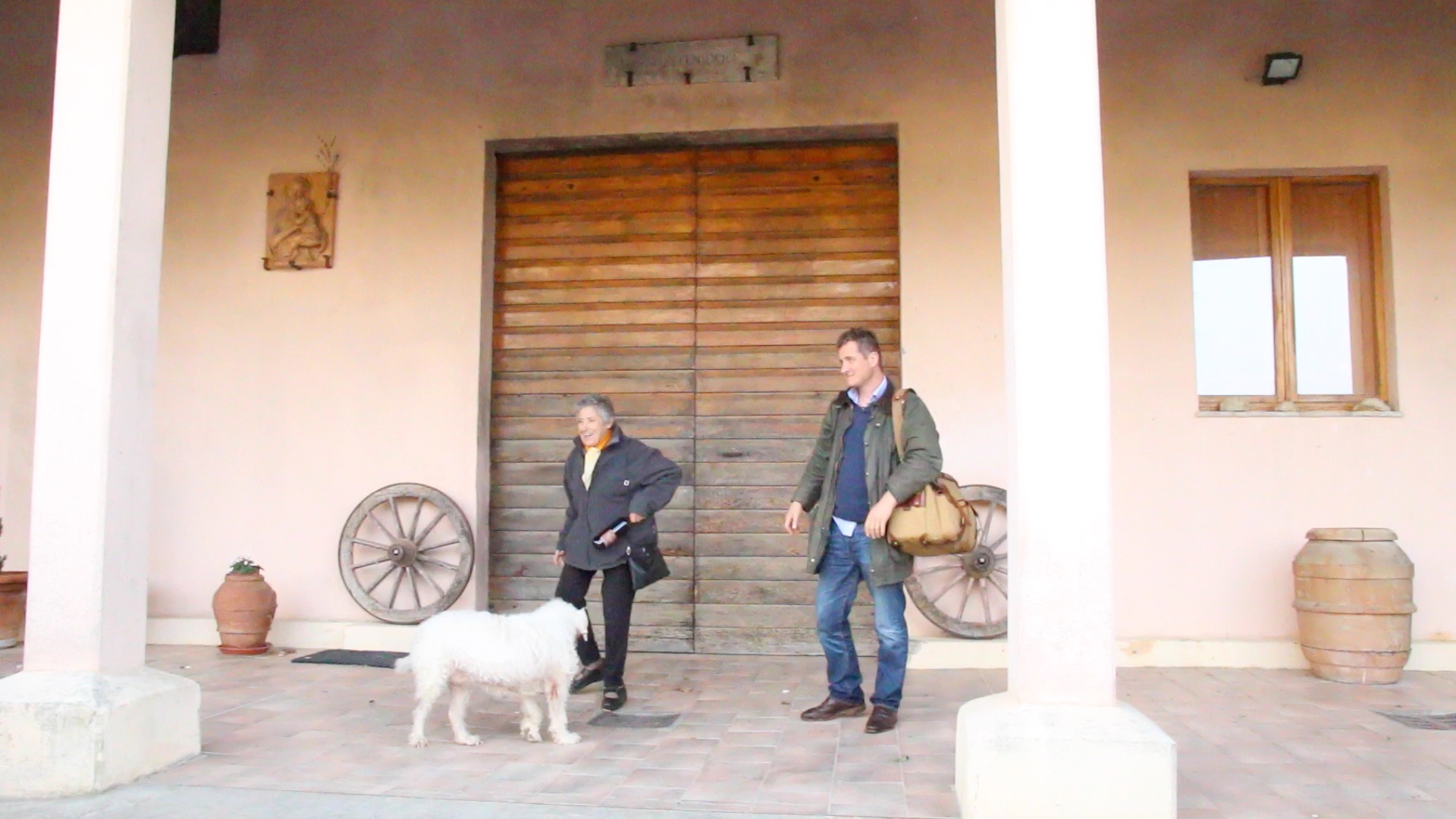
What do you think the future of San Gimignano is? Are you optimistic for San Gimignano? It gets three million tourists a year due to its famous Medieval towers. Can it get itself out of making everyday wine for tourists? Should it be a little bit more ambitious, do you think?
It has been for a while that they should be more ambitious, but you know San Gimignano has always been a kind of motel of the Middle Ages. It's a place which has always been a transit place. For this reason the culture lacks a lot. San Gimignano could be "the" white wine of Tuscany, just as much as Montalcino is the big red of Tuscany. People want quick sales, and money very easily, with a minimum of effort.
Do you think the white wine from San Gimignano, from the Vernaccia grape could rival, say Chablis, or White Burgundy?
My brand is Montenidoli. When they tell me, "Oh, your wines are similar to the Burgundy wine," "No," I say, "I am myself. I am neither better nor worse, but I am myself." That is the truth. I am looking at my soul. Of course I drink a lot of wines from other places. I enjoy the truth of other places, but I am in this place and I'm making the wine of this terroir. I don't want to be similar to anybody else. I want to be better than myself. You see? It's very different. I am not comparing myself to anybody. I am trying my best with what I have. It's a totally different approach.
When one drinks a white wine from San Gimignano, from the Vernaccia grape, what is the typical time in which it should be drunk? Should it be drunk within one year, two years, three years?
Remember, every wine grows in its own cellar. Remember that every wine can be very different. It depends the way you take care of it, the way you treat it. It can be a wine that dies after six months. It can be a wine that can last. It all depends. The soil, first of all it's the soil. Then, it's the way that they take care of it and they bottle it.
Do you think some people have got a little bit obsessed with fashion? They say the fashion is for these big, heavy wines, or oaky wines for example? Very buttery wines?
Alas, alas, Mr. Parker was a disaster all over the world. You know? Really. I have many friends in Burgundy that have been destroyed by Mr. Parker, because of course he didn't like Burgundy wines, because he wanted the big Medoc, and he didn't understand. Instead, the immense elegance of the Pinot Noir, the immense beauty and refinement of a great Pinot Noir is something exquisite, and that you can't copy, because the mystery of the soil, it's the mystery of the place, and the mystery of how the people take care of it.
Do you think there's a move to make more traditional wines in San Gimignano and other famous regions in Tuscany?
No, no, no. Now everybody wants to make a great wine. Everybody is looking for getting awards for being important and getting more money out of the bottles. This is the problem. This is the main question. As usual, money is everywhere. Also for me, because I need money for the Foundation, you see? That is ... Money is the big part of our history. Since the beginning. Since the beginning. Yeah. Like that. For money. But it depends. One, somebody wants money in order to get rich. Everybody has different aims. We have to have the right thing at the bottom of our heart.
When you go to the grape vineyard in the sky, and you're looking down at your creation here, what do you hope to see?
There is nothing of a creation. I am the servant of the servants. I am nothing else. I am trying to do my best to speak to them, be kind to them, to my little girls [vines] here, trying to help them to grow properly, and give, and take great care of the grapes. That's all I do. I am the nurse in the cellar. I am not a wine destroyer, you see. Winemakers are too often, wine destroyers.
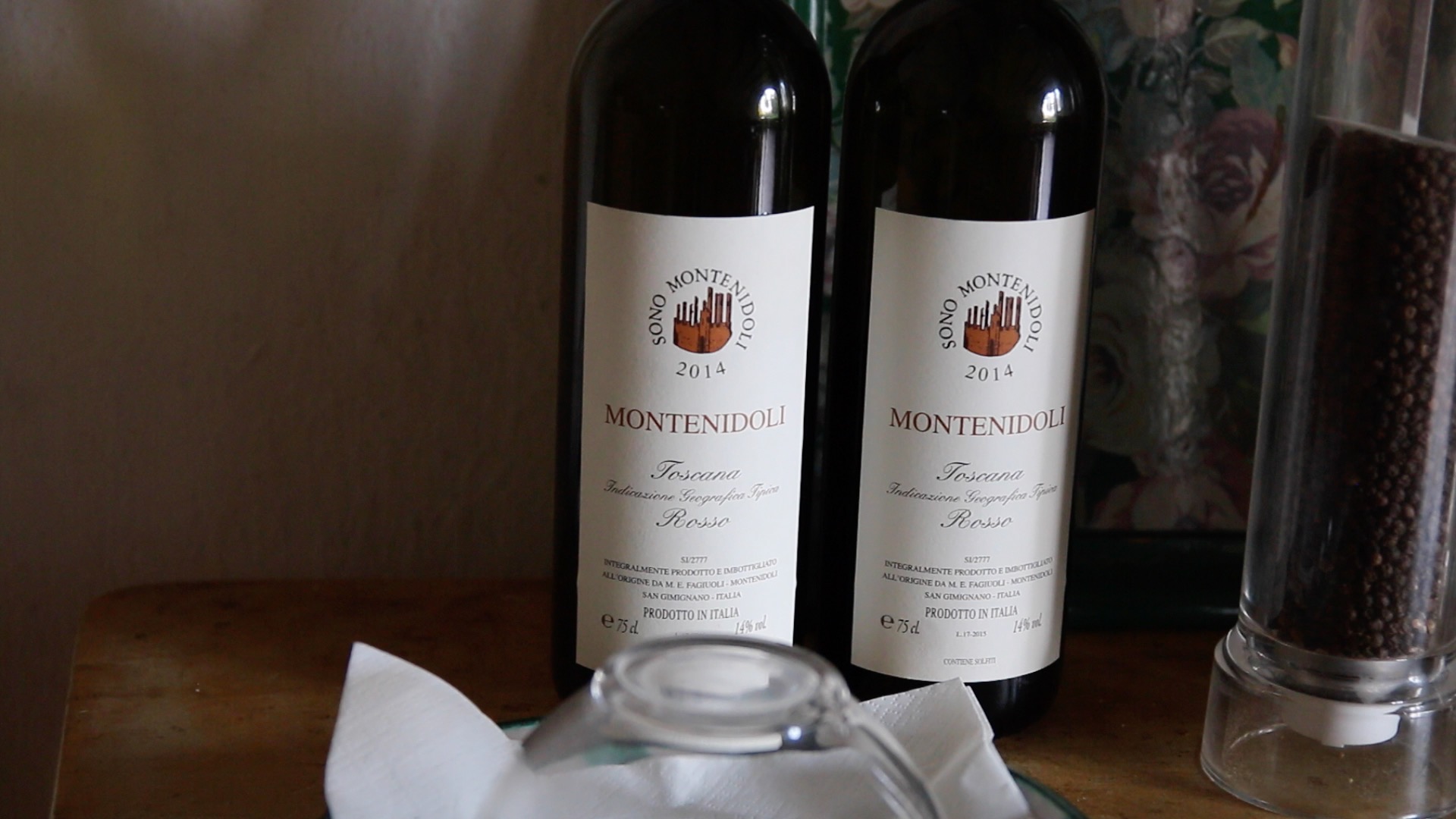
When you get the grapes into the cellar, you press them for the white wine, you get the juice. What is your approach, your philosophy in making the wine?
Every year it's different. Every year, I am a little globe trotter, because when it's a waning moon, I am here working in the cellar. When it's a waxing moon, I am around, except August, September, October. Three months, I am steady here. I speak with the wines. When the grapes arrive, I have to know the grapes. Every year they're different, remember. Then one year I had long macerations with the skins. Another year, less. It all depends. It all depends what they want. My philosophy is to be a servant. To look here, understand, speak, and do what they deserve. What they want. That's all. Also, the wine. I am going to rack the wine when it wants to be racked. I am not saying, "Oh, now I should rack the wine because the oenologist says so-and-so." No. I just go in the cellar, and for instance, there are wines, they stay on the lees for two years, and not everybody does that, because it's very delicate. The lees can poison the must [fresh grape juice before it becomes wine], they can ruin the must, they can add richness to the must. Everything in your life is always on the ... How you say? There is always risk involved if you want something good.
You have to take risks?
Of course. Always.
You have to live on the edge?
Live on the edge. If you live on the edge, you can succeed. This has always been my philosophy. Yes. I don't like to do usual, happy, normal things. To make a Foundation like that, our idea of a Foundation, it's not very normal, is it? You have to look high if you want to do something good. Not follow the path of the others.
When you talked about working with the children when you were younger, these were children with issues and special needs, weren't they?
Well, I've been working also with children who came out of prisons. That's why I say that all the young people now, there are so many answers. They have no faith, no religion, no truth. Maybe they have everything to eat, they have everything, but they have nothing in the heart. Nothing to believe in. That's why maybe either they believe that it's a good religion to go into the others. Maybe it's good to go to drugs, to destroy themselves. It's horrible. This lack of life. But if you don't have some fire and some light in front of your road, at the bottom of your road, of course you have nothing. You need to have love. You need to have a faith in something. You have to believe in something. You have to look for some achievement for something. You have to just know your role, where you have to go. I am sure that if people stay here, young people, who are troubled people, if they have one month in the peace here, learning simple things, maybe their hearts will open up and maybe they will see life in a different way. That is to do something good.
The wine has to help. The life of a vine, vines are incredible plants, but everything is a miracle around us. We don't open our eyes enough to see the miracle that is surrounding us. That's why I love the [paintings of the] Madonnas. Just that is the philosophy. That is a very simple philosophy that is very good for everything. That is myself.
What are your thoughts on how the administration of wine, in terms of deciding which appellation is called, all the different Chianti appellations and the San Gimignano appellation. What do you think about that? Is it well thought out?
I tell you one thing. In Italy, three Italians make four political parties. With this, I reply to you. Okay? That is what I feel and I think. I very seldom know which are the rules.
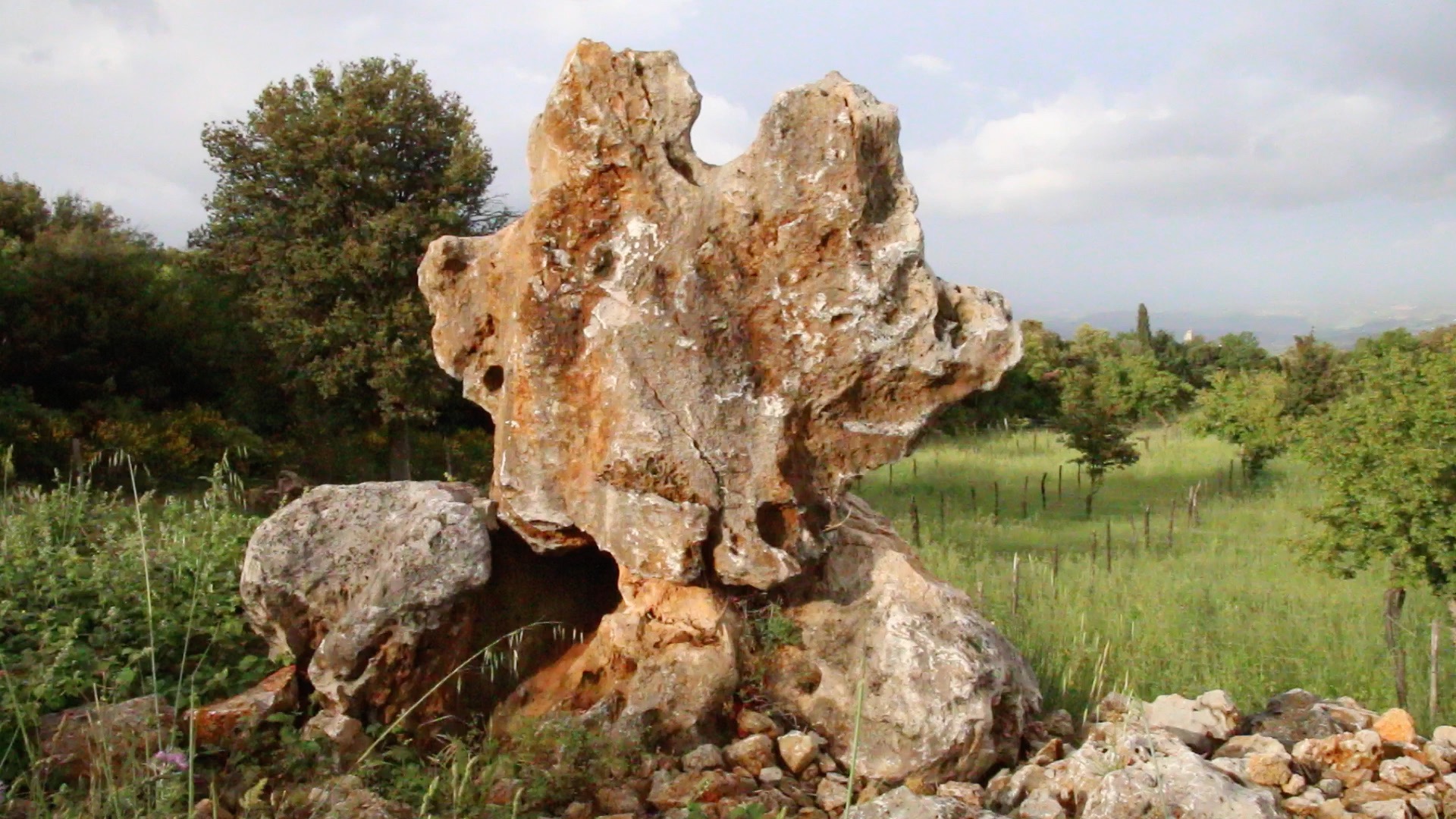
You'd rather listen to the birds than to the politicians, right?
Yes. Oh, the politicians. Poor things. You know what used to say, Tito Livio? Great historian of Latin. When God wants to destroy a society, he puts foolish people at the head of a nation.
Foolish people.
Foolish people. I don't know. I pray to have good people and not to be punished by the God. You see?
With the Foundation, you're bringing people here to work the land.
No, no, no, no. I don't want to take advantage of them. If I want to help them, I'm not going to make them work.
My question is, what specifically does the Foundation do?
The Foundation wants to help. There are two houses.
Montienidoli has to support, the whole of Montenidoli has to support this Foundation. It's becoming a society, and in this society, we have to support these two groups of houses. One for the old people and one for the young people. They are invited from the whole world for one month, and there is a guest house where we have seminars for the wine, for psychology, for whatever can help humanity, from the whole world again, we can hold seminars for one week, like that, and then we have to have a library, an internet. We have to spread this idea.
Of course, the people here will be looked after and they will have agronomy, simple peasants, they will share. They will live with us. We are not going to make them work. We are going to make them share our life, which is totally different. I'm not looking for people to work our soil, because we know how to work our soil, but they have to share our life.
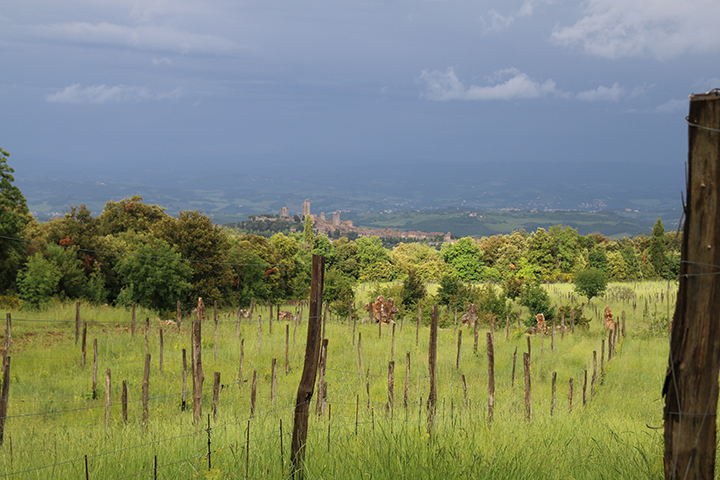
Sales from the wine would pay to maintain people who maybe have had troubles in their life and get them back on track?
Yes. Any kind of young person that needs to find their own truth, but only keeping, cleaning your mind, you can find your own truth. No politics. No religion. Nothing. They have only to find their truth inside themselves.
It's kind of like a didactic, working with nature.
Yes. They will have their own truth like that, and the old people should be people that are alone. You can grant them a month of peace, of holidays, and maybe they can share with the young people their experiences. They can share together. Of course the old people in one house, the young in the other, but around the world for one month. Groups for one month, and if you do that 12 months a year, you have a lot of people coming. And they go home and they speak about it, and it's a little bit of truth that we want to spread. That's it.
You're looking for someone to give the whole estate away to.
I'm not giving the estate to him [to any one particular investor]. He has to join the estate to support. That's totally different. I'm not giving anything to the egoism of somebody.
But you need someone to manage it, though, don't you?
No. It will be managed by many people and we must make a society [a legal structure] out of it, but not one. One is very dangerous.
But when you spoke about someone maybe with a helicopter who would be able to buy the ...
No. they're not going to buy it. They're going to donate.
We never sell. We look for people that will help and share and that is totally different. We are not looking for people who want to grab. We want people who want to give. Totally different. Yeah?
Loud and clear.
